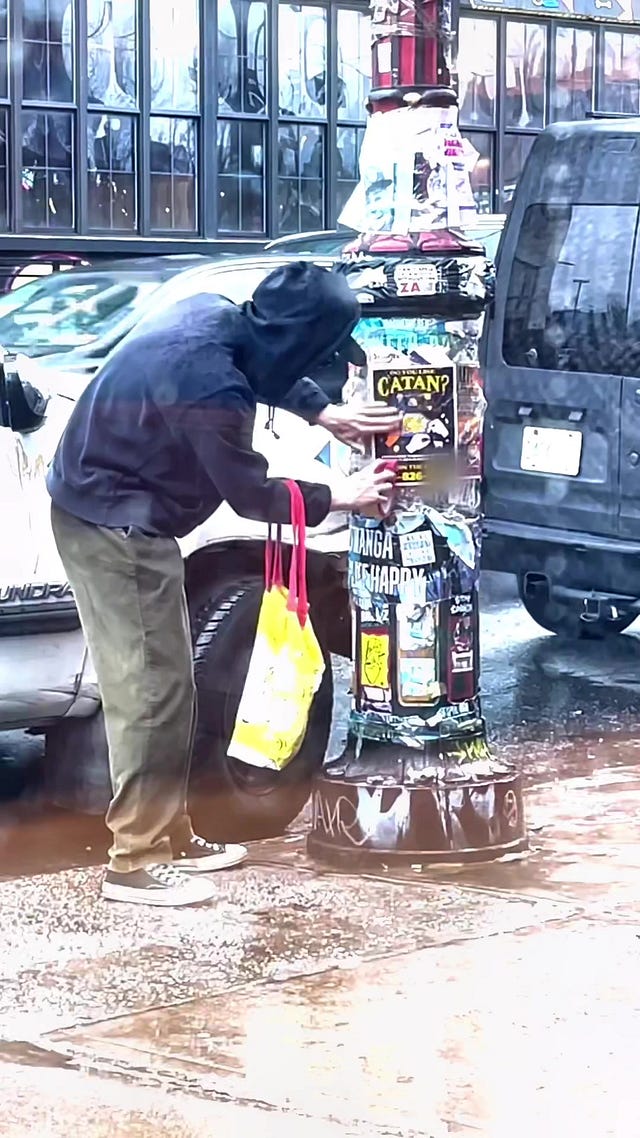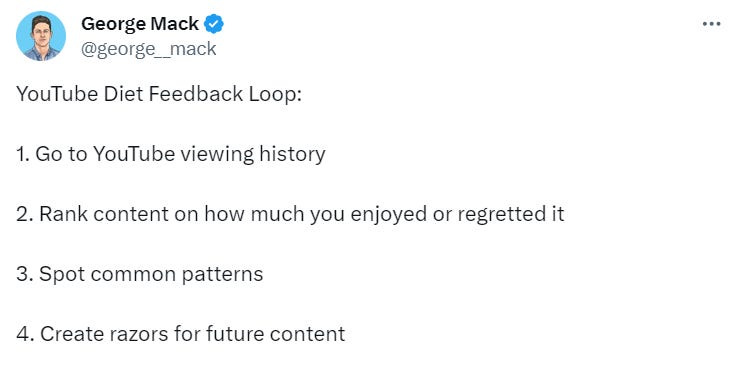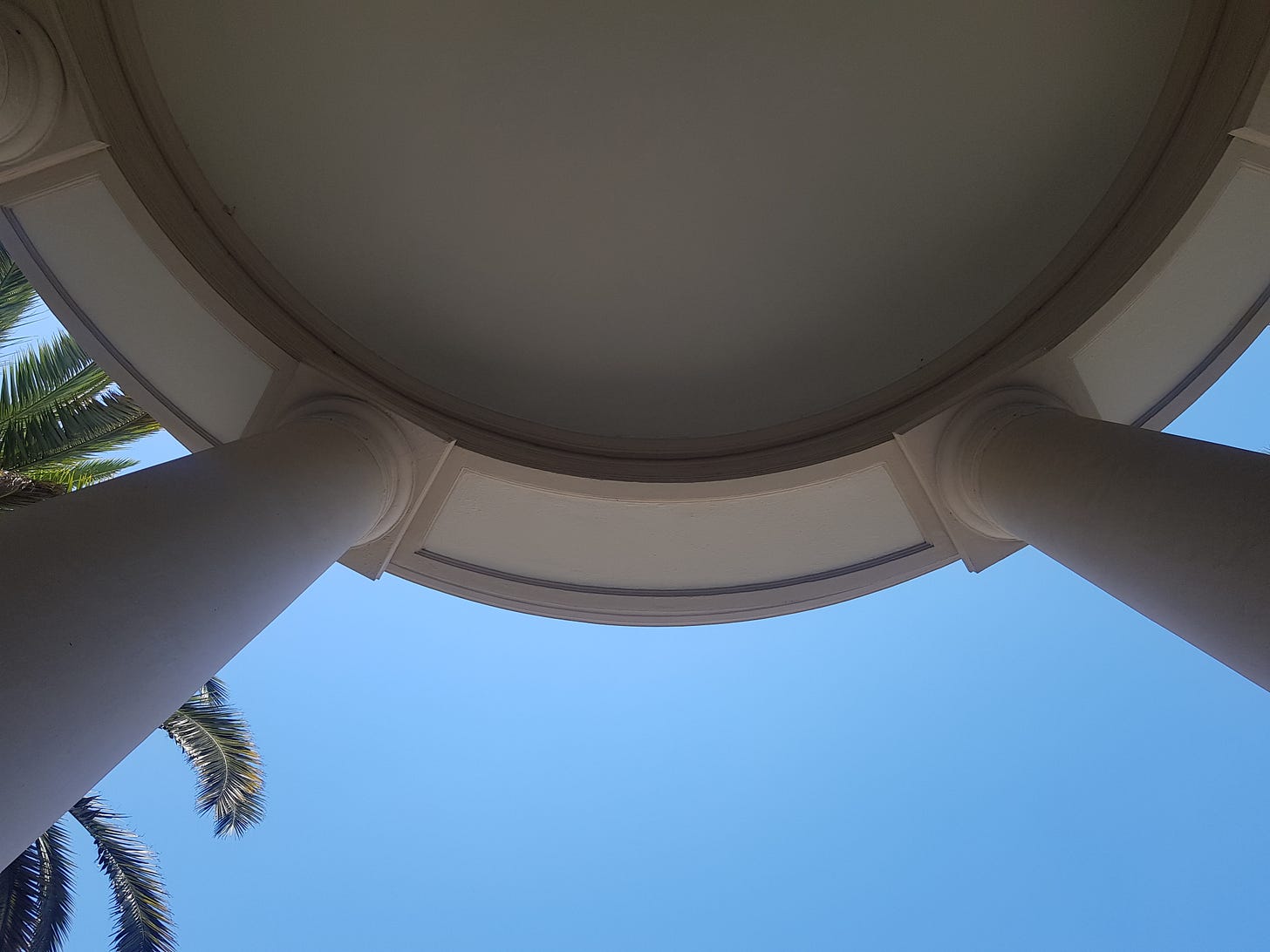Content Redesign
A selfless sign redesign work, the power of digital decluttering, how get unstuck and living a life of creativity, Derek Sivers' writing approach, and a productivity music mix.
Hello Folks!
Welcome to the latest edition of Brain Tickles.
Signs Redesign
Earlier this year, digital artist Max Kolomatsky found himself unemployed. But instead of just dedicating his time to job hunting, he used his skills to help others by redesigning signs to make them stand out. Not an easy task in the crowded walls of the Big Apple.
In the first video of the redesign series he helps a group looking for board game buddies:
 Tiktok failed to load.
Tiktok failed to load.Enable 3rd party cookies or use another browser
People in the comments are calling him a "design vigilante." The reflection he shares at the end of the video sums up his work perfectly:
I'm just an artist lurking in the shadows. Probably forging some long-term friendships. Maybe lifelong ones. All because it just looks a little bit better.
Isn't that honest and wholesomely refreshing?
Removing Content Weeds
I'm constantly looking for ways to make my life more meaningful by eliminating unnecessary things. That's why George Mack's tweet caught my attention:
We shape our thoughts based on the content we consume. So it's a good idea to weed out and remove what's not adding value to our lives now and then.
Take a look at your browser, YouTube, TikTok, and Instagram histories and ask:
What content brings the most and least joy?
Has this account been useful recently?
Does this content align with your long-term goals?
Once you've finished answering these questions, channel your inner Marie Kondo and ruthlessly discard what doesn't serve you.
Getting Unstuck
I'm a fan of Rick Rubin. I first knew about him because he was the producer of one of my favorite albums "De-Loused in the Comatorium" by The Mars Volta. And I've been following him since.
In his recent book, The Creative Act, he discusses creativity as a lifestyle. He's been talking about things like how your taste is a tool you can help other people with, and how creativity is not just for artists.
I like his common sense advice and how it applies to any type of work. Here's an insightful excerpt for anyone feeling stuck:
Beginning a work, completing a work, and sharing a work—these are key moments where many of us become stuck.
How do we move forward, considering the stories we tell ourselves?
One of the best strategies is to lower the stakes.
We tend to think that what we’re making is the most important thing in our lives and that it’s going to define us for all eternity. Consider moving forward with the more accurate point of view that it’s a small work, a beginning. The mission is to complete the project so you can move on to the next. That next one is a stepping-stone to the following work. And so it continues in productive rhythm for the entirety of your creative life.
All art is a work in progress. It’s helpful to see the piece we’re working on as an experiment. One in which we can’t predict the outcome. Whatever the result, we will receive useful information that will benefit the next experiment.
If you start from the position that there is no right or wrong, no good or bad, and creativity is just free play with no rules, it’s easier to submerge yourself joyfully in the process of making things.
Derek Sivers on Writing
Derek Sivers - How I Write Podcast
I admire Derek Sivers' writing. I aspire to write like him, mostly because I aspire to THINK like him: clearly and critically. Derek has a talent for making me question things I've always taken for granted, and that's something you don't often find in many authors.
In this podcast episode, he discusses his writing approach. Here are my key takeaways:
The writing craft is useless without a good idea to back it up.
Writing should be a simplified version of how you talk.
His advice to people who wants to write a book: don't write a book. Instead, put ideas out into the world and test them one at a time.
He realized that he couldn't remember what he had read from books years ago. To fix this, he started writing 20 sentences with key insights from each book, phrased in his own words. These book notes are available on his website.
His goal is not to overly simplify things, it's about making them useful. This is precisely why he built his online shop, allowing him to have greater control and include only what's essential. While it might involve more work initially, it's a more sustainable approach in the long run.
Hidden Gem Mix
This is my go-to trip-hop mix for focused work. I've tried various trip-hop mixes, including the famous one with the girl by the window, but I always come back to this one when I want a productive work session. And the artwork by Yayoi Kusama is a plus.
I'd love your feedback!
What made your brain tickle? Anything you'd remove or add?
Reach out on Twitter or email paulina at paulinasaez dot com.
Live long and stay creative,
Paulina





I love the 20 sentences from Derek Sivers. I'm always so interested in note-taking. (And really enjoyed How to Take Smart Notes), but struggle to actually put it into practice. This seems simple enough ◡̈
I didn't know Rubin produced that Mars Volta album. Pretty interesting since it was around the same time he was famous for producing 99 Problems by Jay-Z. That guy is really all over all sorts of genres!